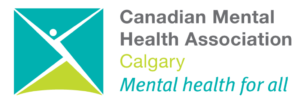Menu
Close
International Overdose Awareness Day #CMHA100
Aug 31, 2018
The tragedy of overdose death is preventable
The Canadian Mental Health Association joins people and organizations around the world to mark International Overdose Awareness Day, a global event held each year on August 31st.
The purpose of the day is to raise awareness of overdose and reduce the stigma of a drug-related death. It also acknowledges the grief felt by families and friends remembering those who have died or had a permanent injury due to drug overdose. Overdose occurs when someone takes one or more drugs in a quantity or combination that exceeds what their body can handle. While street drugs often come to mind, overdose can happen with many different types of drugs, from alcohol to opioids, in all segments of the Canadian population, including those who take prescription drugs and those who use drugs recreationally.
While Canada is, unfortunately, facing a range of issues related to drug-related poisoning, we are grappling with a steep increase in the number of deaths due to opioid overdoses among those who use drugs alone, men, youth, seniors, Indigenous peoples and those in correctional facilities. Last year, Canada lost almost 4,000 people to opioid overdoses—many linked to toxic drug supplies, fentanyl and other synthetic opioids. Worldwide, almost 200,000 people die prematurely due to drugs every year—the majority due to the use of opioids.
In most cases, such deaths are avoidable.
Recognizing warning signs
Recognizing the signs and symptoms of overdose can help prevent death and injury. For opioids and depressants, some warning signs include:
- Unresponsiveness or unconsciousness
- Passing out or a “slumped over” posture
- Shallow or irregular breathing, or no breathing at all
- Slowed heart rate or absence of a pulse
- Choking or gurgling sounds
- Purple lips and fingernails
- Clammy skin
- Low body temperature
- Vomiting
- Seizures
- Loss of coordination
For amphetamines or stimulants, some warning signs include:
- Tremors and muscle twitches
- Hot, flushed, or sweaty skin
- Headaches
- Chest pain
- Difficulty breathing
- Hostile or violent disposition
- Uncontrolled movements or seizures
- Panic, paranoia, or symptoms of psychosis
- Confusion or disorientation
An overdose is a medical emergency that requires immediate medical attention. Always call an ambulance or 9-1-1 if you suspect someone has overdosed.
Preventing overdose
While it can be scary or upsetting to think about overdose, the good news is that education and preparation can help prevent it from happening. If you use drugs, whether prescribed or not, or know someone else who uses drugs, carry a naloxone kit with you to reverse the effect of an opioid poisoning.
In Canada, kits are available through community pharmacies, health-care workers and community-based organizations, often at no cost. Consuming drugs at overdose prevention sites and supervised consumption sites can also reduce the risk of overdose. We also recommend not using drugs alone.
The risk of fatal poisoning is higher for people who consume illegal substances alone at home, given that they lack a peer or support network that can intervene with naloxone and call 9-1-1.
Helping a loved one
Although people use drugs for many different reasons, substance use can be a sign of underlying mental health problems and an addiction. Some people use drugs to cope with untreated mental illness, childhood trauma, family difficulties, pain and other stressors.
If you suspect someone close to you might have a substance use problem or may be at risk of an overdose, talk to them. Listen with openness and without judgement. It can be difficult to watch someone you care about experience problems with substances and frightening to think that they can experience an overdose.
You may have fears about their safety, or maybe even your own. If your loved one is actively using drugs or is at risk of an overdose, encourage them to follow harm reduction practices and use harm reduction services. If using prescribed medications to manage pain, encourage your loved one to talk to their doctor or health-care professional about alternative therapies.
If your loved one is open to seeking treatment, talk to them or encourage them to speak to their physician or another health-care professional about their treatment options.
Many people are better able to recover when they have the support and encouragement of friends, family and peers. Listening, encouraging good communication and healthy habits, being patient, and helping to instill a sense of hope for recovery can help support a loved one.
Learn more
To learn more about the opioid crisis in Canada and how to prevent overdose, please:
- Contact your local CMHA to find support and resources in your area.
- Read the recent CMHA policy paper, Care not Corrections: Relieving the Opioid Crisis in Canada.
- Download the CMHA Ontario opioid overdose toolkit, Reducing Harm: Recognizing and Responding to Opioid Overdoses in Your Organization.
Show your support
Join the 86 CMHA branches, regions and divisions across Canada on social media today to support those undergoing the grief of overdose and its effects. Send a message that every person’s life is valuable and that stigmatizing those who use drugs needs to stop. #EndOverdose #CareNotCorrections #CMHA100

Our Peer Support program services can be accessed over the phone at 403-297-1402 or through email at peer@cmha.calgary.ab.ca.
